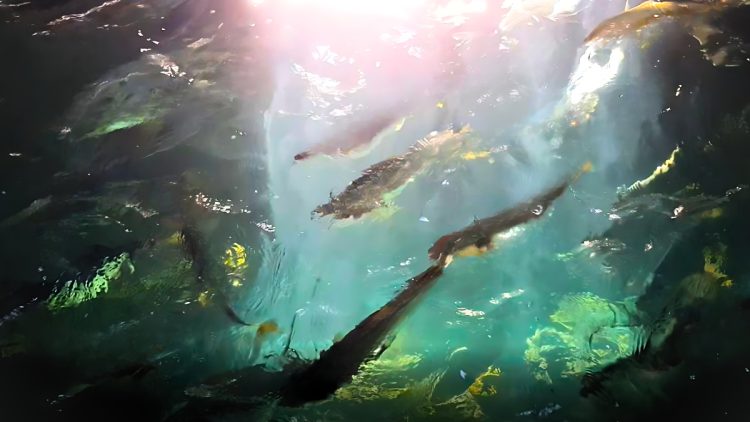Aquaculture, the farming of aquatic organisms, has become a crucial pillar of global food security. Contributing nearly half (49%) of the world’s fish production at a staggering 88 million tons annually, this industry plays a vital role in meeting the growing protein demands of our planet. However, this growth trajectory faces significant challenges – one of the most prominent being infectious diseases. These diseases not only cause immense economic losses for fish farmers but also threaten the overall sustainability of the industry.
Pakistan, with its vast freshwater resources and extensive coastline, presents a promising opportunity for aquaculture development. Home to the largest contiguous irrigation system in the world, Pakistan boasts over 13,000 fish farms and a thriving fishing community. However, despite rapid growth in recent years, capture fisheries (harvesting wild fish) still dominate the market. This highlights the immense potential for Pakistan to further develop its aquaculture sector, particularly in marine environments and freshwater reservoirs.
Early Detection: The Key to Disease Prevention
Recognizing the devastating impact of diseases, researchers are prioritizing preventative measures and early detection strategies. Traditionally, these methods relied heavily on manual monitoring, a time-consuming and often subjective approach. Fortunately, advancements in technology, particularly in data science and Artificial Intelligence (AI), offer a promising alternative. AI empowers the aquaculture industry to transition from manual methods to automated, machine-driven solutions.
This shift paves the way for substantial benefits. AI-powered image analysis can extract vital information from underwater footage, enabling accurate data interpretation and facilitating better decision-making for fish farmers. This translates to increased profitability and improved efficiency in fish farms.
Challenges and Opportunities for Pakistani Aquaculture
While Pakistan boasts a strong foundation for aquaculture, several challenges need to be addressed to unlock its full potential. These include:
- Limited coordination: A lack of collaboration between governmental and non-governmental organizations can hinder progress.
- Research and development: Insufficient budget allocation for research and development projects can stifle innovation.
- Policy and guidelines: Inadequate fishery policies and guidelines specifically designed to support aquaculture development create hurdles for growth.
Overcoming these challenges requires a multi-pronged approach involving government support, industry collaboration, and investment in research.
A Multi-Module Approach to Revolutionize Fish Health Monitoring
This research project tackles these challenges head-on by utilizing a multi-module approach to fish health monitoring, leveraging the power of machine learning and computer vision. Here’s a breakdown of the three distinct modules and how they address the identified challenges:

Module 1: Precise Biomass Estimation
This module tackles the issue of resource mismanagement by employing deep learning algorithms to accurately estimate fish biomass in underwater footage. The system can:
- Segment fish in the footage, differentiating them from background elements.
- Categorize fish into five distinct species.
- Determine the overall biomass of the fish population within the frame.
This information equips fish farmers with the necessary data to optimize feeding strategies, ensuring efficient resource allocation and reducing waste.
Module 2: Early Disease Detection and Symptom Identification
This module directly addresses the challenge of limited disease prevention by enabling early detection of potential health issues. The system utilizes a deep learning framework to:
- Categorize fish into healthy and unhealthy categories based on visual cues in the footage.
- For fish classified as unhealthy, identify specific symptoms and potential locations of bacterial infections.
Furthermore, the module has been specifically enhanced to enable real-time detection of Flavobacterium, a prevalent bacterial disease in trout, through underwater video analysis. This real-time monitoring allows for swift intervention and minimizes disease outbreaks.
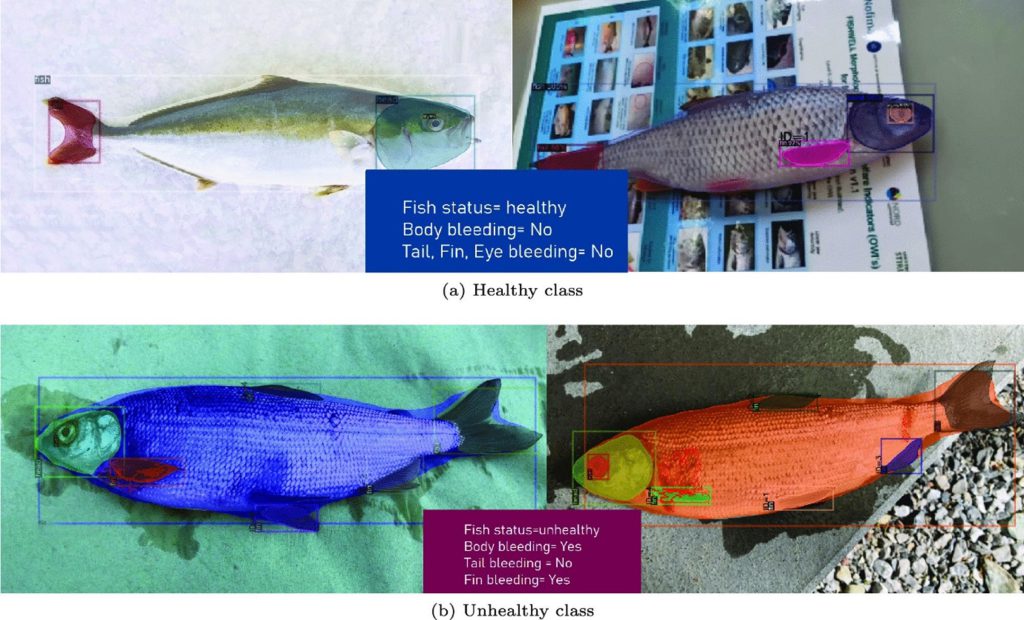
Module 3: Behavioral Analysis for Early Warning Signs
Moving beyond physical symptoms, this module delves into the realm of behavioral changes to identify potential health issues. Fish are highly sensitive to environmental fluctuations, exhibiting subtle behavioral shifts in response to external factors. This module analyzes five key behavioral parameters:
- Fish density
- Swimming speed
- Direction
- Angle
- Depth
By monitoring these parameters, the system can detect variations that might indicate stress or underlying health problems, providing early warning signs for potential disease outbreaks.
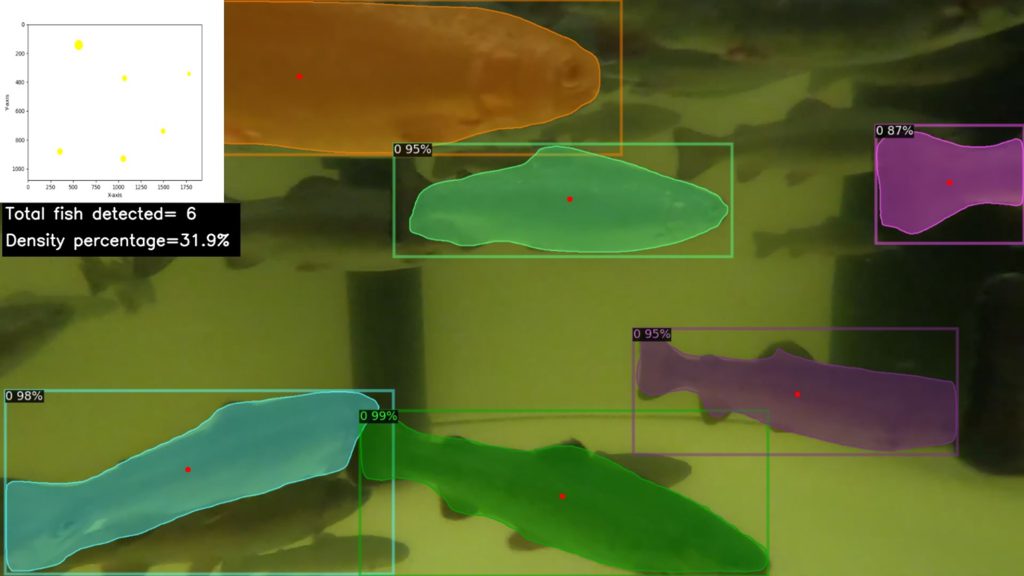
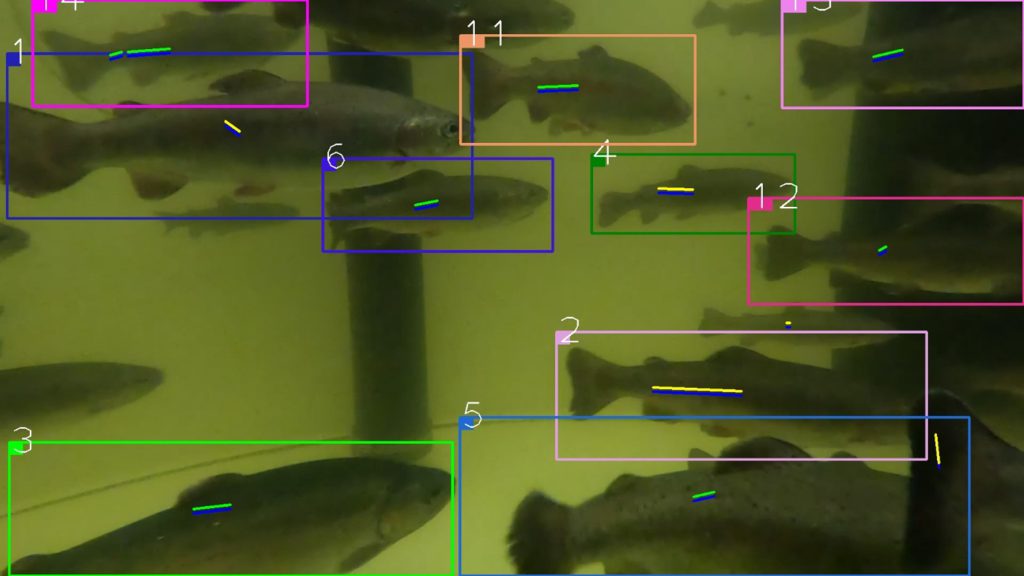
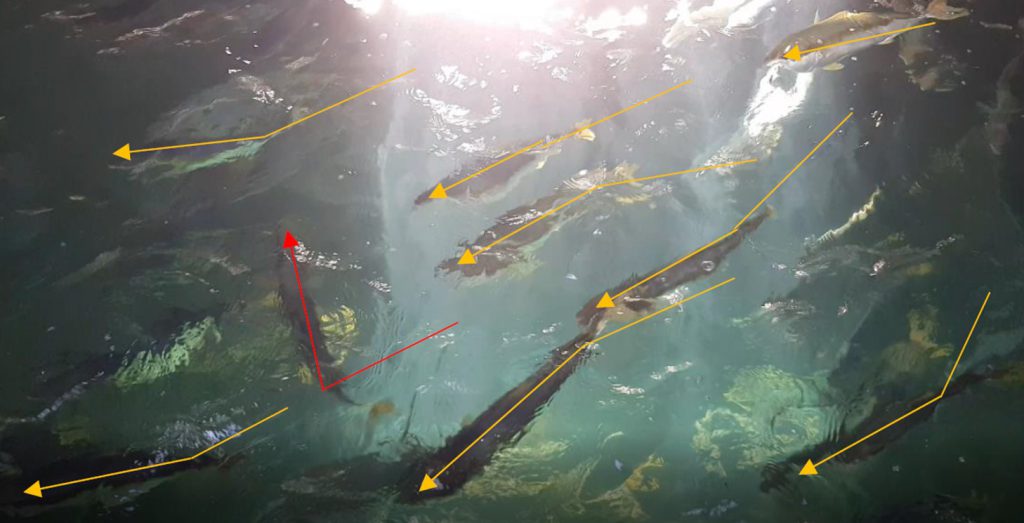
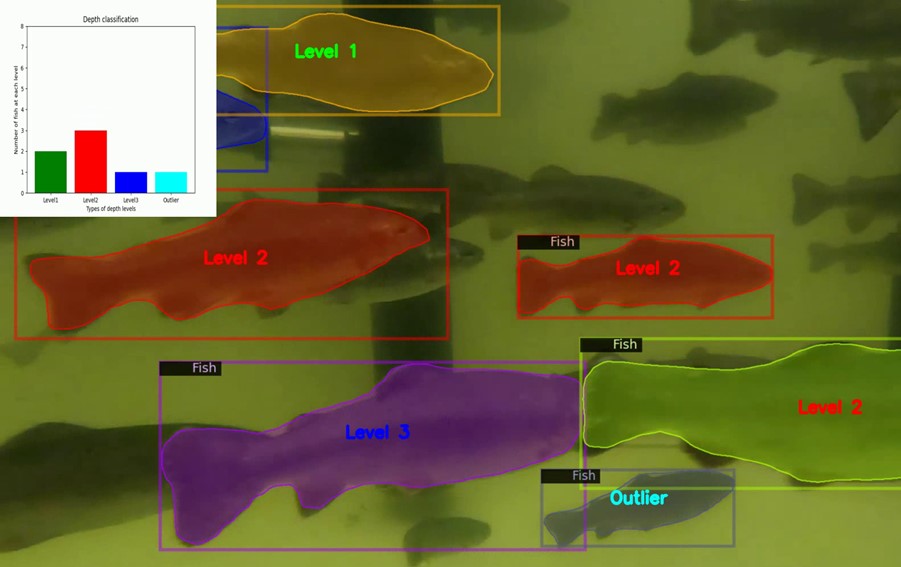
Early detection of fish behaviour, as exemplified for disease detection, aligns perfectly with the broader goals of sustainable development. It addresses the pressing need to bridge the gap between food demand and supply, in line with SDG-2 (Zero Hunger). Additionally, it contributes to the promotion of good health and well-being (SDG-3), the preservation of life below water (SDG-14), and the responsible production and consumption of resources (SDG-12).
This multi-module fish health monitoring project offers a comprehensive solution to the challenges faced by Pakistani aquaculture. By promoting early disease detection, optimizing resource management, and contributing valuable data for future advancements, this project paves the way for a more sustainable, profitable, and flourishing aquaculture industry in Pakistan.
Team:
- Kanwal Aftab and Prof Dr Muhammad Moazam Fraz from National University of Sciences and Technology (NUST), Sector H-12, Islamabad, Pakistan
- Linda Tschirren & Boris Pasini from Institute of Natural Resource Sciences, Zurich University of Applied Sciences (ZHAW), Wädenswil, Switzerland
- Peter Zeller from UrbanBlue GmbH, Bienenstrasse 1, Zurich, Switzerland
Publication
Aftab, K., Tschirren, L., Pasini, B. et al. Intelligent Fisheries: Cognitive Solutions for Improving Aquaculture Commercial Efficiency Through Enhanced Biomass Estimation and Early Disease Detection. Cogn Comput (2024). https://doi.org/10.1007/s12559-024-10292-2
Video Demonstration
The author is Professor and HoD (AI & Data Science Dept) and Director of Machine Vision and Intelligent Systems Lab (MachVIS) at the School of Electrical Engineering and Computer Science (SEECS), National University of Sciences and Technology (NUST). He can be reached at moazam.fraz@seecs.edu.pk.
Research Profile: https://bit.ly/3zt6XUM

![]()

